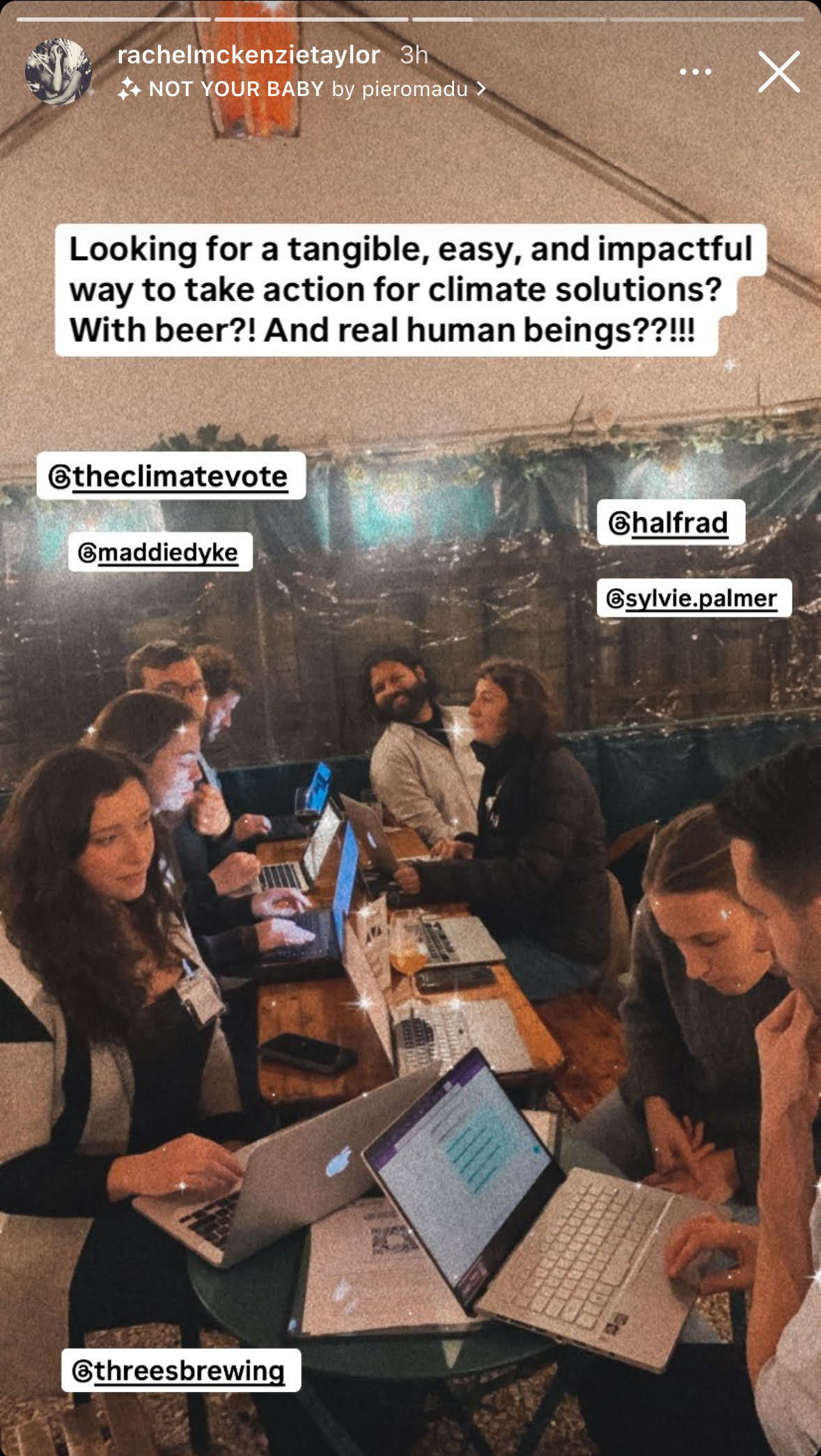
I was in Brooklyn recently and had the chance to attend a weekly Hour of Action organized by Climate Changemakers, where they gather a bunch of interested folks in a bar or cafe, and coach them to contact their representatives about actionable issues where they can have a material impact. The session I attended focused on informing local representatives about funds available through the Inflation Reduction Act to electrify fleets of city vehicles, and urging them to enact legislation and policy to do so.
Growing up in India, the context in which I heard the word “policy” was mostly in “company policy”, used by smiling bureaucrats to excuse their inability to help or accommodate, sometimes as an accurate representation of their cog-in-the-machine stature, and others as a thinly veiled justification for discretionary callousness. In my time here in the States, where I’ve worked with urban planners, climate scientists, electricity experts, and activists concerned with the environment, healthcare, housing, energy, immigration, and much more, I’ve heard the word be used more and more by everyday people, outside of government.
Why is that? Well, for one I’m less than 150 miles from the White House, the seat of power of the US Federal Government, with its vast resources and responsibilities. In India I always lived in cities far away from government capitals, thus government policy always seemed like a far away concern.
For another I’m surrounded by highly educated people who have degrees in social sciences, forestry, urban planning, disaster management, international relations, and many other fields involving people and organizations and policies, so it is natural for them to think in those terms. In India I was mainly surrounded by professors of the sciences, by artists who pursued their media, by doctors and technologists and mathematicians: people whose lives did not naturally lead them into policymaking.
Another reason, and a big one at that, is the number of people in the US that still believe in the rule of law, in organizations and institutions and in policies. That if you set the right policies, the right outcomes will occur. That good government is possible: not only can it exist, but it should. That if you make the right rules, people will follow them. This is in stark contrast to the India of the time, where even the Prime Minister once admitted to corruption absorbing 90% of funds allocated for public programs. Where law and rules are absent enforcement. For what are rules but mere suggestions if not required.
But finally, and I think this might be it, is because I was a child in India. Policy was a matter of adult engagement that I never had the patience for. Now, when I have seen the impact elections can have, the performative nature of Conference of Parties, the real and immediate impact on spouses of visiting workers as soon as they were allowed to have jobs of their own, it is difficult for me to dismiss it.
I am thankful to be in a time and place where good policy is still possible, and where regular citizens, when organized in just the right way, can sometimes influence their representatives to do the right thing.